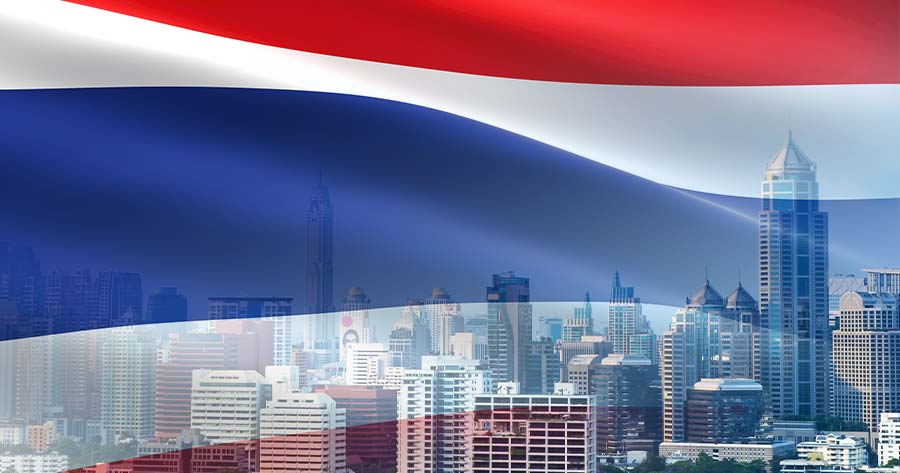All eyes on Thailand’s developing political movement as its Prime Minister, Paetongtarn Shinawatra, faces the possibility of losing her prime ministerial power.
On July 1, the Constitutional Court of Thailand accepted a petition requesting the court to interpret whether Paetongtarn should be terminated from her premiership for alleged unethical conducts. The Court ordered a suspension to her Prime Ministerial duties until a ruling is made.
The court decision came amid various issues from both domestic and overseas, ranging from coalition infighting, U.S. tariff pressure, Thailand-Cambodia border dispute, and slowing economy.
Political development in Thailand is heading to a crucial point and there are four key issues that could decide the outcome for the ruling party amid this turmoil.
Collapsing Coalition
After the withdrawal of Bhumjaithai Party, which was Pheu Thai’s biggest ally with 69 seats in the House of Representative, other parties have so far pledged to remain in the Pheu Thai led coalition.
However, should more parties leave the coalition following the court decision, the now 255 members governing majority could face rapid collapse, as any change in allegiance from at least one of the parties could shift the parliamentary balance toward the opposition.
Parliament Dissolution
Concerns over political gridlock will be further exacerbated with the upcoming session on economic bills, especially FY2026 budget. If the resolution on the budget could not be reached, the Thai Prime Minister will usually dissolve the parliament and hold a new election.
After His Majesty the King has endorsed the dissolution, an election must be held within 45-60 days. Formation of a new government, however, could take months as elected officials debate on coalition and prime ministerial vote.
With the suspension order, Paetongtarn can no longer dissolve parliament. That power, along with other prime ministerial authority and obligation, has been transferred to acting Prime Minister Suriya Jungrungreangkit. He will be leading a special cabinet meeting on July 3 afternoon, after which Phumtham Wechayachai is expected to be appointed as the new acting Prime Minister.
The People’s Party, the leading opposition party, has endorsed this development, calling it the only way to contain the crisis and prevent a military coup.
There is also a scenario that the ruling party will push forward to pass the budget bill before dissolving the government as part of an offrecord condition made by coalition parties due to their discontent with the PM.
Anti-Prime Minister Protest
Before the court accepted the petition on July 1, more than 20,000 of protestors rallied in Bangkok demanding Paetongtarn’s resignation. The protest came amid a leak of an audio clip between her and Hun Sen, President of the Senate of Cambodia, in which she implied that the army action in handling the Thai-Cambodia border issue was treacherous.
While the protest was largely peaceful, it echoes the previous large demonstration against Shinawatra family premierships, especially with protestors calling out Paetongtarn as a traitor and the use of yellow color motifs and national flag.
Previous protests against the Thaksin and Yingluck Shinawatra administrations ended in 2006 and 2014 military coup. While leaders of the protest may deny inciting another military coup, they admitted that they would accept it if it happened on its own accord.
Thai-Cambodia Border Tension
Paetongtarn claimed that her phone call with Hun Sen was to seek a peaceful resolution to the crisis. Previously, both sides had imposed restrictions on trade and travel between the two countries.
The tightening of the border was in response to a clash between both sides at the disputed Chong Bok area on May 28, which resulted in one dead on the Cambodian side. The situation escalated after Cambodia appealed to the International Court of Justice to rule on the disputed areas.
Cambodia seeks third-party arbitration to the dispute, but Thailand insists on bilateral talks and refuses to recognize the ICJ’s jurisdiction.
The spat also bleeded into online space, with Hun Sen releasing the aforementioned leaked audio clip and Prime Minister Hun Manet criticizing Thailand’s handling of the border conflict on Social Media.
A week ago, Hun Sen threatened to expose Thaksin, whom he has a close relation with for decades. He also calls for a change in leadership as he casts doubt on Paetongtarn’s capability in resolving the crisis.




